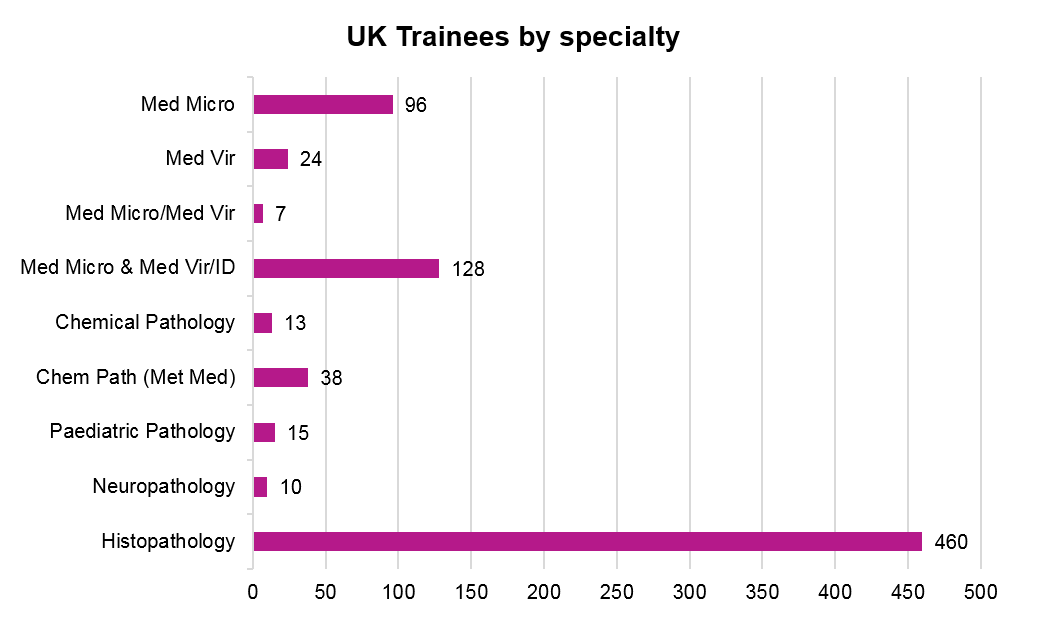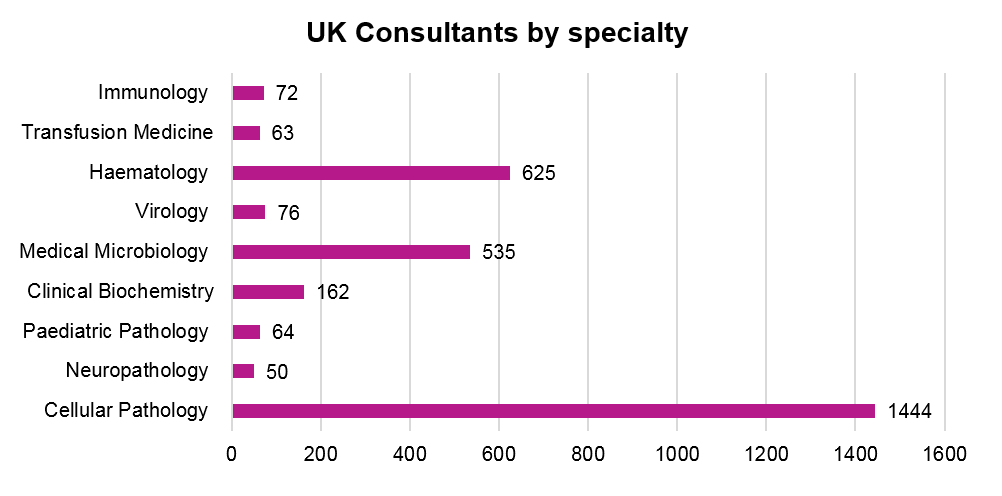The College's Workforce Department is responsible for charting and mapping changes in the pathology workforce which helps NHS Trusts and other organisations get the right people, with the right skills, in the right place, at the right time and at the right cost.
They do this by collating data from pathology specialty surveys sent to College members. It is vital that the College collects accurate data allowing NHS Trusts and organisations to plan for workforce changes. In addition, a full and complete picture of the pathology workforce, including any shortages, enables the College to put its case to government for increased investment in pathology services.
To enable the Workforce Department assess the current state of the pathology workforce, College members need to fill in in their job details on-line via the College’s website. However, 40% of the College’s medical members do not complete their workforce details.
The College’s Workforce department have published an annual report which includes the latest pathology workforce data.
Numbers across specialties
The number of pathologists across specialities varies quite widely.
Some of the smaller pathology specialties comprise fewer than a hundred consultants such as neuropathology and paediatric pathology.


Changing workforce
The pathology workforce is changing:
- On average there is a 5% reduction in number of consultants over the age of 55 across a number of pathology specialties, largely due to early retirement, without a comparable number of trainees coming through to replace them.
- There is a 16% difference between the percentage of female trainees and female consultants across the pathology specialties. This increase in the proportion of female trainees compared to the proportion of female consultants suggests that more women are entering the profession.
Specialty case study - clinical biochemistry
Clinical biochemists are concerned with the biochemical investigation of bodily fluids, for example, blood, cerebrospinal fluid and urine, to diagnose diseases.
Workforce data collected by the College shows that there are 162 consultants in clinical biochemistry in the UK which is not enough provide a continuing consultant-led service.
Additionally, there are only 51 clinical biochemistry trainees in the UK at present, which is not enough to replace consultants as they retire and In 2016, only seven people took up training positions in clinical biochemistry.

